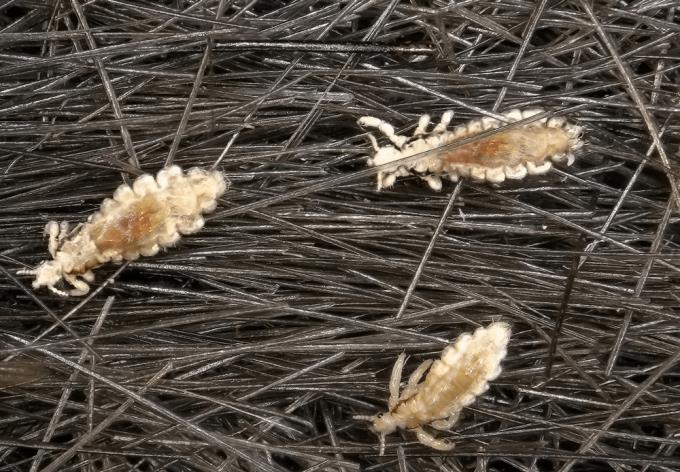Head lice infection during pregnancy is not a serious health condition but can be uncomfortable if not treated completely.
Lice infection during pregnancy is something that no pregnant mother wants to encounter. However, if this happens, you can learn about natural herbal remedies for lice before taking medication to ensure the safety of your baby in the womb.
What are lice?
Head lice are small insects that nest on the scalp. They grow by sucking blood from the host's scalp with each bite. In most cases, lice are not carriers of any disease or germ, they only cause irritation or itching when biting on the scalp. Female lice mature within 7 - 10 days after hatching, attaching themselves to the hairline and laying eggs.
Head lice are so contagious, and you can easily get lice during pregnancy from the slightest contact. If a person is experiencing scalp lice, you should refrain from touching or sharing their utensils, such as hats, combs, towels, sleeping in the same bed ...
Is it safe to treat lice during pregnancy?
Doctors have advised pregnant women to be cautious about using medications and check if they affect the baby.
However, in the case of lice infection, some pregnant women will turn to lice-fighting shampoos and forget that they can be made up of strong chemicals. These products may cause adverse effects on the health of the pregnant woman and the baby in the abdomen. Therefore, it is best for pregnant women to try natural lice treatments instead of chemical shampoos.
How to treat lice during pregnancy

You can effectively use medications or natural remedies to treat lice:
1. Natural remedies
One way to naturally kill effective lice is to use a special brush (thick comb) to brush wet times. After you wash your hair, divide your hair into equal sections, then brush your hair from root to tip, repeating at least 2-3 times per section. You should do the brushing with a thick brush daily for 2 weeks until no more lice appear.
Using tea tree oil in its pure form can help get rid of lice without harming your unborn baby. Just mix a few drops of essential oil with baby shampoo and apply the mixture to your scalp, let it sit for about half an hour, then rinse with water.
In addition, pregnant women can use essential oils suitable for the treatment of lice such as lavender oil, neem oil, clove oil and eucalyptus oil.
2. Use of drugs
Medication is preferred only if you have tried natural remedies but the condition has not improved. Most lice-fighting shampoos are not as effective as expected, so special sprays or creams are a good choice.
Lice cream containing dimethicone with a concentration of 4% has been certified by doctors to be safe for pregnant women and lactating women. So you can buy this product from pharmacies. However, to be more cautious, read the information on the label carefully to check if there are any warnings for pregnant women.
How to prevent lice during pregnancy
Some preventive measures to prevent substances from occurring include:
After getting rid of the phenomenon of head lice, you can destroy the remaining ones in clothes or sheets, hats, etc. by using heat. Dry your clothes, bed sheets ... in the sun for a few hours and rinse them off or you can use an iron and be careful with these items. To get rid of lice hiding in a hat, in addition to exposing the hat to the sun, pregnant mothers can use a hair dryer, turn on the hottest setting and then dry the hat. The high temperature will cause the lice hiding in the creases to come out. This will help limit the risk of re-infection for pregnant women.
Vacuum floors or any upholstered furniture
Use lice-killing aerosol products on sofas and dining chairs
If you find that someone around you is constantly itching and scratching your head, take preventative measures early to avoid spreading.
When to see a doctor?
If you have tried these remedies, but it doesn't work, see your dermatologist for advice. Also, do not mention that you are pregnant and only use medicines that are safe for the fetus.












